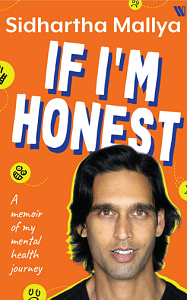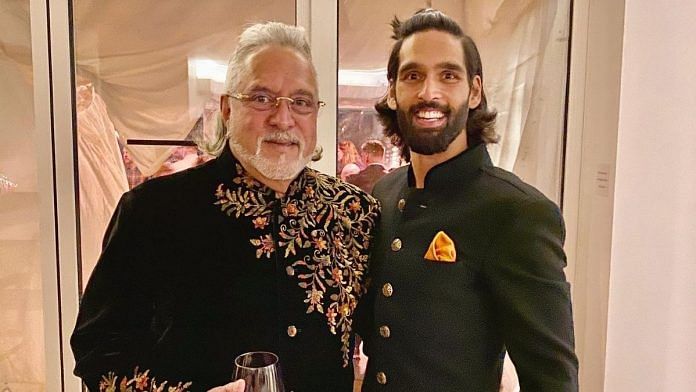Watching someone you care about as they suffer definitely has an impact on you, especially if you’re an empath like I am. Though my dad and I might not have had the closest of relationships in recent years, it still hurts to see him deal with the stress he endures on a daily basis. Knowing there is very little I can do to actually help adds to the pain and also causes immense amounts of frustration. When I was in the UK, I attended a couple of his court sessions with him. The process of going to court in the first place is a surreal experience. Going there because of a case against a parent really fucks with your head. It was difficult to see him sit in the dock behind some glass. It looked like he was confined in a cell more suited to Hannibal Lecter. When the judge asked him to stand up as she read some stuff out, I felt pain and helplessness. It was like I was at the zoo, watching an animal in a cage.
Growing up, one of my favourite films was Liar Liar with Jim Carrey. The courtroom scene near the end of the film when Jim Carrey’s character wins the case is one of my all-time favourites. Because the script was so good and because Jim Carrey is such a genius comic actor, the film would make you think that the experience of being in court was quite a fun thing. However, what I saw first-hand from being in court with my dad that day was far from fun or entertaining.
Upon leaving these court hearings, we would be greeted by the media outside the courthouse, all aiming questions at my dad. Most of them were not questions, however, but accusations and statements. Basically anything that would cause him to react and thus generate the best news. Hearing some of the things aimed at him was very difficult to deal with, and seeing his frustration build was hard to watch. I prayed that he would keep his cool and wouldn’t say anything in the heat of the moment. After all, these reporters were trying to poke the bear in the hope that he would react. Fortunately, my dad remained calm for the majority of the time.
There is one picture of the two of us coming out of the court after one of these hearings, and in my suit, wearing sunglasses, I almost look like my old man’s bodyguard. As sharp as I looked on the outside, I felt nothing like that on the inside, and those sunglasses were there to hide the pain and tears in my eyes that were coming off the back of what I’d just seen.
Not long ago, I was on FaceTime with my dad, and I felt as though he had lost his spark. I could see that what he was going through was taking a big toll on him. If you ask him, though, he might have a different view. He always likes to say how tough he is. And the truth is, he probably is a lot tougher than most people. One of his lawyers once said to me that not many would have the resilience my dad has shown over the past five years to keep fighting. But while this might be true, he’s certainly not bulletproof or immune to the toll a situation like this can take on one’s mental health. On that FaceTime call, I could see that, despite the strength on the surface, there was anguish and pain behind his eyes. As they say, the eyes are the window to the soul and they don’t lie. This hurt to see.
My dad is also a very emotionally guarded individual, so as much as I want to be there for him, I always feel as though there is a wall between us. This frustrates me, as I wish he would just open up.
Also Read: A home-coming tip for rich, unapologetic billionaires like Vijay Mallya
A couple of years ago, when we had a big chat I mentioned earlier, when we agreed that we were just very different people at this point in our lives, he told me he realised that I was a ‘super sensitive individual’. (Had he said that five or six years before that conversation, I would have taken it as a big insult because, like vulnerability, I would’ve seen sensitivity as weakness. Now, however, I felt it might have been the greatest compliment I’d ever been paid in my life! That’s because by then I had come to realise that being super sensitive and vulnerable can be our biggest strengths as human beings. And my dad noticing this in me was the result of my self-work!) On the flip side, I told him that I see him as a ‘super guarded individual’ and this is where the difference between us lies. I think his generation has a very different view on what being ‘tough’ means. For his generation, toughness is shutting off, compartmentalising, putting up a wall and not showing your feelings. For me and those of my generation, real strength comes from letting your guard down and allowing yourself to be vulnerable.
This was a great reminder, though, that everyone is different, and people have different views based on a number of different factors—age, upbringing, etc. For those of us who have gone through a process of self-work, we might wish people were more open with us or behaved in a certain way, but we have to remember that everyone deals with things in their own way. Those who grew up in a different time, and those who might not have worked on themselves may see and deal with things differently, and that is okay. For example, if the Sidhartha of today tried to have a chat with the Sidhartha of ten years ago about being vulnerable and open, the younger version would have probably punched the present-day version in the face. That’s simply because the junior me hadn’t done the work on himself and, therefore, wouldn’t have been able to relate or even comprehend what the present-day version of me was saying. Therefore, it’s important to have compassion.
Also Read: Network & glamourous parties: How easily this tycoon seduced Indian bankers & politicians
Maybe after reading this book, my dad may finally allow himself to be vulnerable and open, but maybe not. Either way, I need to learn to become comfortable with who he is and the way he chooses to express (or not express) himself. After all, if you have gone through the kind of mentally, emotionally and physically stressful ordeal that my dad has, isn’t it only natural to try and protect yourself as much as possible? If that means he puts up a guard, I must accept it and learn to work with it.
In fact, since learning to work with it, I have actually seen a shift in him. Yes, the guard is still there, but a softer side of him has emerged. They say that you get reflected back at you what you put out, so by acknowledging and accepting him as he is, there is less resistance from me, and in turn less from him being reflected back.
 This excerpt from ‘If I’m Honest: A memoir of my mental health journey’ by Sidhartha Mallya has been published with permission from Westland Publications.
This excerpt from ‘If I’m Honest: A memoir of my mental health journey’ by Sidhartha Mallya has been published with permission from Westland Publications.



